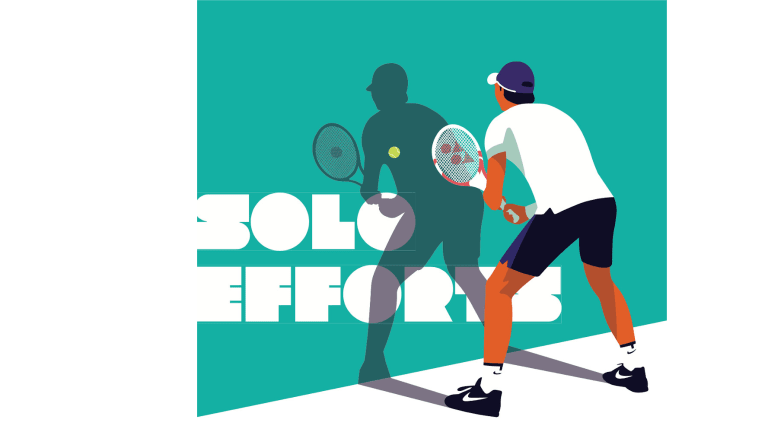The tragic coronavirus pandemic has required unprecedented social distancing efforts to stem the contagion. This increases the possibility of feeling isolated, lonely, anxious and down. For tennis players, the pandemic has also led to the loss of a passion, and perhaps your primary source of physical activity. These changes add stress to what is already an incredibly stressful time.
Always try and look for the good in the bad. The silver lining here is that the human species is resilient, and the requirements needed of us now are temporary. In this “new normal,” realize that this time will pass, and that there are ways you can continue to connect with tennis—and even improve in its absence.
To grow and make the most of this time at home without tennis, set exciting goals. Athletes are programmed to look for challenges and overcome them. Create two or three that you believe will better you as a tennis player and as a person. Doing shadow strokes while visualizing playing points at home allows you to move, have a racquet in your hand, and feel like you are playing the sport.
